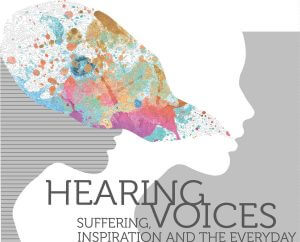Professor Tanya Luhrmann on ‘The Voice of God’
Public Lecture
Wolfson Gallery, Palace Green Library
16 February 2017, from 5.30 – 7pm
God is in some ways the ultimate uncertainty, since God has no material trace which gives certain evidence of presence. The great achievement of the cognitive science of religion has been to demonstrate that evolved, “natural” qualities of our minds readily generate intuitions about supernatural agency. Yet it is also true that Christians also report that faith is hard: that it takes effort, and that this effort arises from the uncertainty of God’s presence. This talk makes the case that people find evidence of God’s presence in mental events; that different practices of attending to mental events shape mental experience; that different cultures and different theologies emphasize mind and mental process in distinctive ways, and that this has consequences for the way people experience God. I compare the experience of hearing God speak among charismatic Christians in Accra, Chennai and the Bay Area in the United States, and find that God’s voice is recognized differently and experienced differently in these theologically similar but culturally different settings.
This public lecture is free and all are invited to attend, but places are limited and can be reserved in advance through Eventbrite.
Biography
Tanya Marie Luhrmann is the Watkins University Professor in the Stanford Anthropology Department. Her work focuses on the edge of experience: on voices, visions, the world of the supernatural and the world of psychosis. She has done ethnography on the streets of Chicago with homeless and psychotic women, and worked with people who hear voices in Chennai, Accra and the South Bay. She has also done fieldwork with evangelical Christians who seek to hear God speak back, with Zoroastrians who set out to create a more mystical faith, and with people who practice magic. She uses a combination of ethnographic and experimental methods to understand the phenomenology of unusual sensory experiences, the way they are shaped by ideas about minds and persons, and what we can learn from this social shaping that can help us to help those whose voices are distressing.
Tanya was elected to the American Academy of Arts and Sciences in 2003 and received a John Guggenheim Fellowship award in 2007.When God Talks Back was named a NYT Notable Book of the Year and a Kirkus Reviews Best Book of the Year. She has published over thirty OpEds in The New York Times, and her work has been featured in The New Yorker, The New York Review of Books, The Times Literary Supplement, Science News, and many other publications. Her new book, Our Most Troubling Madness: Schizophrenia and Culture, will be published by the University of California Press in 2016.
This lecture will advance some of the aspects presented in our Hearing Voices exhibition, which is currently on display at Palace Green Library (further information below). We encourage you to enjoy the exhibition before the lecture starts.
Further information
This event is part of the linked programme of events around Hearing Voices: suffering, inspiration and the everyday, a major exhibition on voice-hearing produced by Hearing the Voice and Palace Green Library.
The exhibition is at Palace Green Library, Durham, UK from 5 November 2016 to 26 February 2017. For more information please see the exhibition website. Visitor information can be found at the Palace Green Library website.
About Hearing Voices: suffering, inspiration and the everyday
 Hearing a voice in the absence of any speaker is one of the most unusual, complex, and mysterious aspects of human experience. Typically regarded, as a symptom of severe mental disorders such as schizophrenia, voice-hearing is increasingly recognized as an important part of many people’s lives and experience, as well as a phenomenon that has had profound significance, not only for individuals, but across communities, cultures, and history.
Hearing a voice in the absence of any speaker is one of the most unusual, complex, and mysterious aspects of human experience. Typically regarded, as a symptom of severe mental disorders such as schizophrenia, voice-hearing is increasingly recognized as an important part of many people’s lives and experience, as well as a phenomenon that has had profound significance, not only for individuals, but across communities, cultures, and history.
From the revelatory and inspirational voices of medieval mystics to those of imaginary friends in childhood, and from the inner voices of writers as they craft their characters to the stories of people from the international Hearing Voices Movement, this exhibition will explore the complexity and diversity of the experience and interpretation of voice-hearing.
This exhibition draws on the work of Hearing the Voice, a large interdisciplinary study of voice-hearing based at Durham University and funded by the Wellcome Trust.

